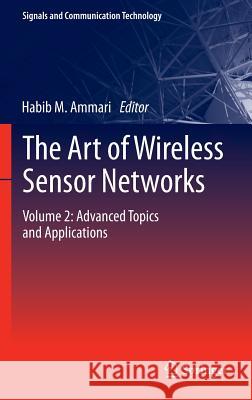The Art of Wireless Sensor Networks: Volume 2: Advanced Topics and Applications » książka
The Art of Wireless Sensor Networks: Volume 2: Advanced Topics and Applications
ISBN-13: 9783642400650 / Angielski / Twarda / 2014 / 696 str.
During the last one and a half decades, wireless sensor networks have witnessed significant growth and tremendous development in both academia and industry. A large number of researchers, including computer scientists and engineers, have been interested in solving challenging problems that span all the layers of the protocol stack of sensor networking systems. Several venues, such as journals, conferences, and workshops, have been launched to cover innovative research and practice in this promising and rapidly advancing field. Because of these trends, I thought it would be beneficial to provide our sensor networks community with a comprehensive reference on as much of the findings as possible on a variety of topics in wireless sensor networks. As this area of research is in continuous progress, it does not seem to be a reasonable solution to keep delaying the publication of such reference any more.This book relates to the second volume and focuses on the advanced topics and applications of wireless sensor networks. Our rationale is that the second volume has all application-specific and non-conventional sensor networks, emerging techniques and advanced topics that are not as matured as what is covered in the first volume. Thus, the second volume deals with three-dimensional, underground, underwater, body-mounted, and societal networks. Following Donald E. Knuth's above-quoted elegant strategy to focus on several important fields (The Art of Computer Programming: Fundamental Algorithms, 1997), all the book chapters in this volume include up-to-date research work spanning various topics, such as stochastic modeling, barrier and spatiotemporal coverage, tracking, estimation, counting, coverage and localization in three-dimensional sensor networks, topology control and routing in three-dimensional sensor networks, underground and underwater sensor networks, multimedia and body sensor networks, and social sensing. Most of these major topics can be covered in an advanced course on wireless sensor networks. This book will be an excellent source of information for graduate students majoring in computer science, computer engineering, electrical engineering, or any related discipline. Furthermore, computer scientists, researchers, and practitioners in both academia and industry will find this book useful and interesting.











